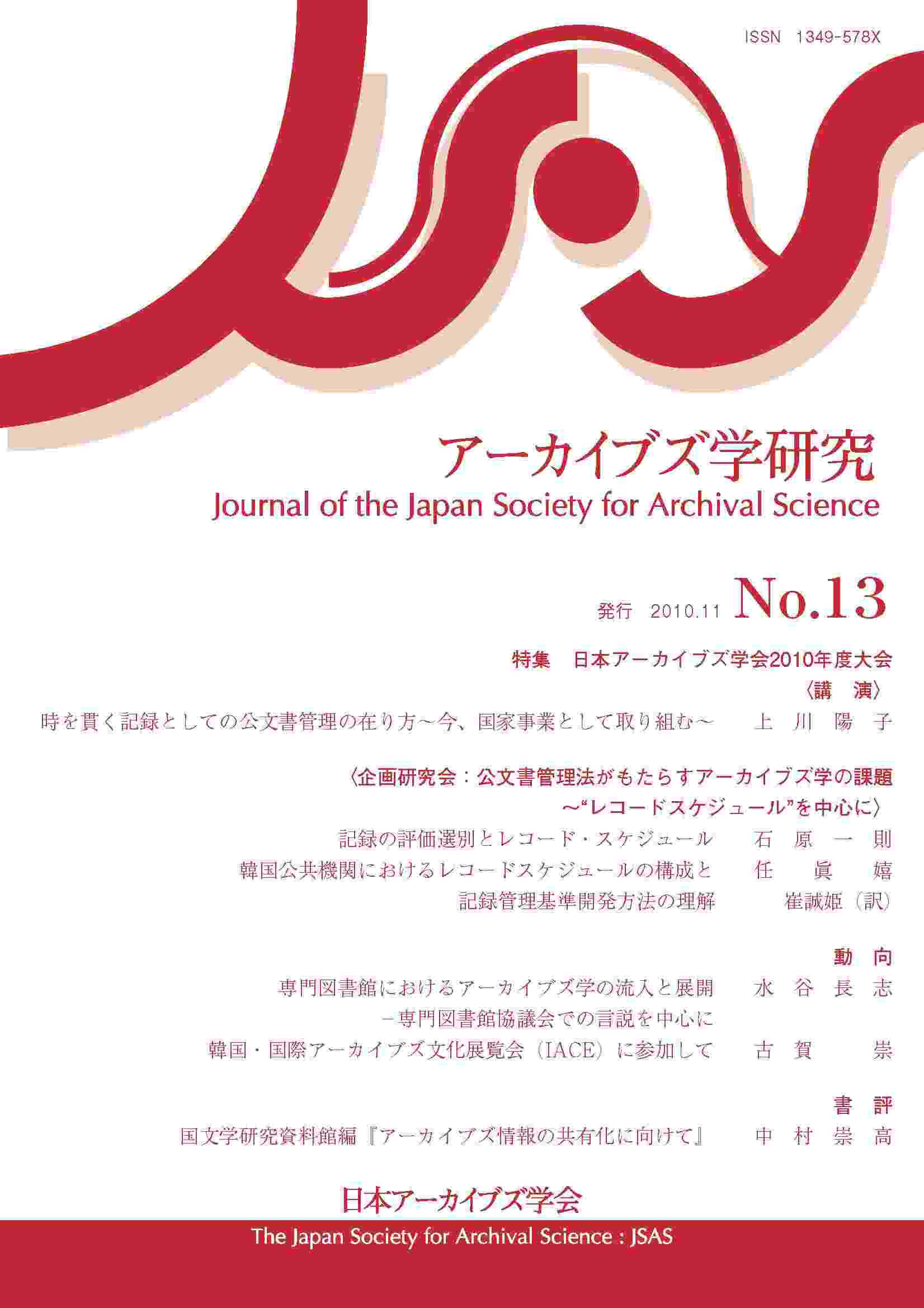Volume 13
Displaying 1-6 of 6 articles from this issue
- |<
- <
- 1
- >
- >|
Special issue: JSAS annual meeting 2010
Lecture
-
Article type: oration
2010 Volume 13 Pages 2-15
Published: November 30, 2010
Released on J-STAGE: February 01, 2020
Download PDF (2742K)
Annual Research Meeting
-
Article type: symposium
2010 Volume 13 Pages 16-30
Published: November 30, 2010
Released on J-STAGE: February 01, 2020
Download PDF (2174K) -
Article type: symposium
2010 Volume 13 Pages 31-52
Published: November 30, 2010
Released on J-STAGE: February 01, 2020
Download PDF (4322K)
Research Trends
-
Article type: research trend
2010 Volume 13 Pages 54-59
Published: November 30, 2010
Released on J-STAGE: February 01, 2020
Download PDF (1900K) -
Article type: research trend
2010 Volume 13 Pages 60-65
Published: November 30, 2010
Released on J-STAGE: February 01, 2020
Download PDF (2112K)
Book Review
-
Article type: book-review
2010 Volume 13 Pages 68-73
Published: November 30, 2010
Released on J-STAGE: February 01, 2020
Download PDF (1552K)
- |<
- <
- 1
- >
- >|
